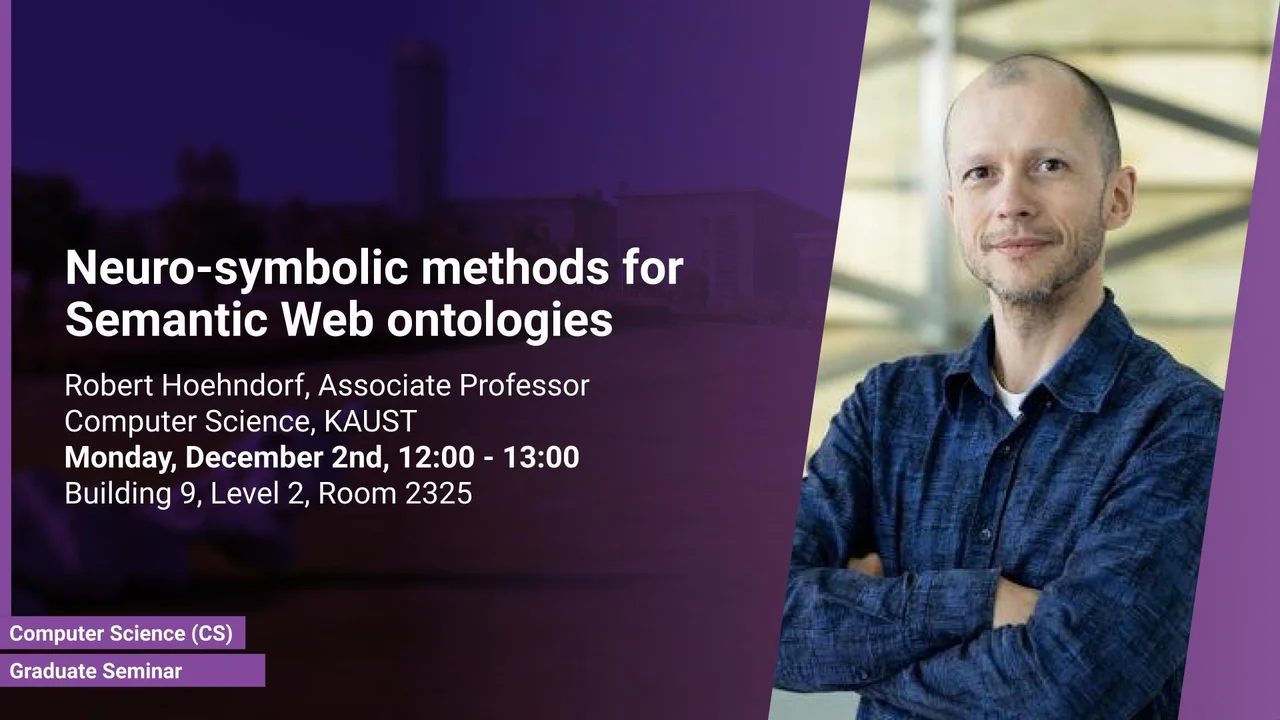
Neuro-symbolic methods for Semantic Web ontologies
Semantic Web ontologies are widely used to provide a conceptual schema for sharing and integrating data and knowledge using a logic-based language. The content of ontologies may also be used to provide background knowledge in machine learning models or provide domain-specific constraints that can be verified automatically and used for zero-shot predictions.
Overview
Abstract
Semantic Web ontologies are widely used to provide a conceptual schema for sharing and integrating data and knowledge using a logic-based language. The content of ontologies may also be used to provide background knowledge in machine learning models or provide domain-specific constraints that can be verified automatically and used for zero-shot predictions.
The combination of embedding symbolic representations (such as ontologies) and extracting symbolic representations from the embeddings are two main components of neuro-symbolic AI systems. I will introduce methods for embedding Semantic Web ontologies and outline some of the properties of the embeddings that relate to model and proof theory. I will further show how the embeddings can be inverted to extract axioms and enable a form of approximate reasoning. My main area of application is in life sciences where several large ontologies have been developed, and I will demonstrate the application of neuro-symbolic methods on the prediction of protein functions using the Gene Ontology.
Brief Biography
Robert is an Associate Professor in Computer Science at King Abdullah University of Science and Technology in Thuwal where he is the PI of the Bio-Ontology Research Group (BORG). Prior to joining KAUST, Robert held research positions at the Max Planck Institute for Evolutionary Anthropology, the European Bioinformatics Institute, University of Cambridge, and Aberystwyth University. He earned his PhD degree in Computer Science from the University of Leipzig. Robert's research focuses on the development and application of knowledge-based algorithms in biology and biomedicine.
Presenters
Brief Biography
Robert Hoehndorf is an Associate Professor of Computer Science at King Abdullah University of Science and Technology (KAUST), where he is the principal investigator of the Bio-Ontology Research Group (BORG).
Before joining the University in the fall of 2014, Professor Hoehndorf obtained his Ph.D. in Computer Science from the University of Leipzig, Germany, in 2009. Post-graduation, he spent several years in the U.K. as a research fellow and a research associate at Aberystwyth University and the University of Cambridge, respectively. He was also a postdoctoral fellow at the European Bioinformatics Institute, U.K.